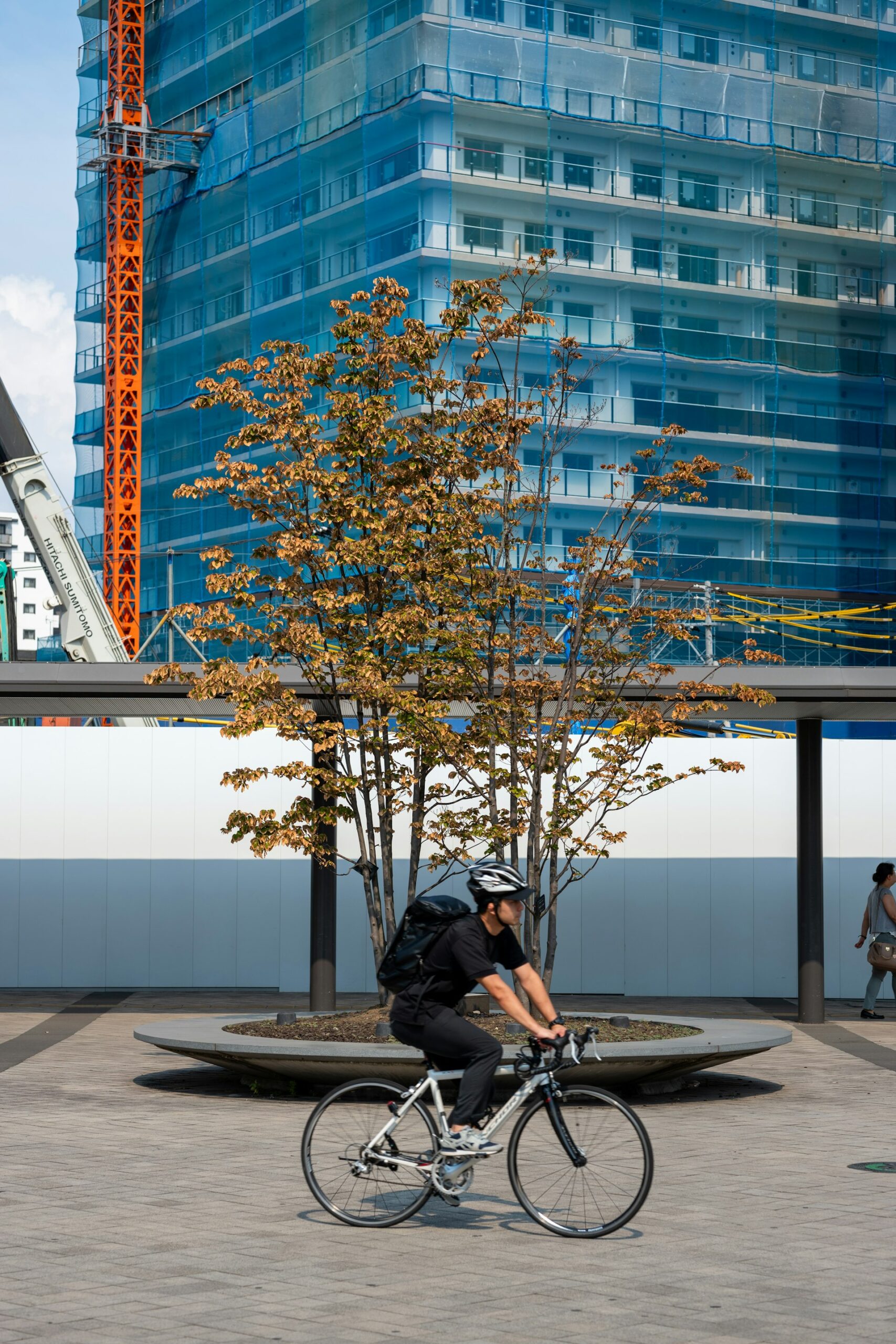How to Unlock Genuine Local Experiences for Truly Unique Travel

Photo by Bernd 📷 Dittrich on Unsplash
Introduction: Why Local Experiences Transform Travel
Modern travelers increasingly seek deeper connections with the places they visit, moving beyond typical sightseeing to truly experience local culture. Engaging with locals, participating in their daily life, and supporting community-led initiatives can turn an ordinary trip into a life-changing adventure. This guide provides comprehensive, practical steps to help you discover and access unique travel experiences with locals , ensuring your journey is both memorable and meaningful.
1. Eat Where the Locals Eat: Savor Authentic Flavors
One of the most accessible and enjoyable ways to connect with a destination is through its food. Instead of dining at chain restaurants or tourist-centric establishments, seek out local eateries, street food stalls, and markets . These places often serve traditional dishes that reflect the region’s culture and history.
How to find local food experiences:
- Ask residents, hotel staff, or guides for recommendations on where they eat.
- Use reputable review platforms like Google Maps or Yelp to identify eateries with reviews mentioning local crowds.
- Explore food markets and try dishes you may not find elsewhere. For example, in Vietnam, bustling markets offer everything from pho to banh mi, often prepared by families who have run stalls for generations.
Approaching food as a cultural gateway can lead to unexpected friendships and deeper understanding of local life. Make an effort to engage with vendors-ask about the dish’s origins or ingredients. This not only enriches your meal but also fosters genuine cultural exchange [2] .
2. Participate in Festivals, Events, and Community Gatherings
Attending local festivals, parades, or community events offers immersion in a region’s traditions, music, and customs. These gatherings often showcase unique rituals, foods, and performances that are rarely found in guidebooks or mainstream tours.
Finding and joining local events:
- Research your destination’s event calendar before arrival. Look for festivals, markets, or holidays during your stay.
- Follow local tourism boards or community centers on social media for real-time updates.
- Upon arrival, ask locals about upcoming events or join a guided tour that includes festival visits. Some tours, such as those in France or Italy, coordinate attendance at music festivals or harvest celebrations [2] .
Participating in these gatherings not only supports the community but also provides insight into the region’s identity. Be respectful of local customs and, where appropriate, ask for permission before photographing or recording events.
3. Seek Out Home Visits and Family Meals
Home-cooked meals and family visits are among the most intimate travel experiences. Some tour operators and local hosts open their homes to travelers for dinners or cultural exchanges. These experiences often include cooking demonstrations, storytelling, and a chance to share traditions.
How to access authentic home experiences:
- Look for established tour providers that offer home visits, such as those with a proven track record and positive reviews. For example, Trafalgar’s “Be My Guest” experiences allow travelers to dine in local homes and participate in family traditions in countries like Italy, Greece, and Turkey [5] .
- Search for community-based tourism platforms or local organizations that facilitate cultural exchanges. These may be found through official tourism websites or well-known travel blogs.
- If links or platforms are unavailable, ask your accommodation or local guides if such experiences are possible in the area.
Always approach these opportunities with respect and curiosity. Be open to learning, and consider bringing a small gift as a token of appreciation when visiting someone’s home, as is customary in many cultures [5] .
4. Engage in Hands-On Workshops and Artisan Visits
Participating in craft workshops or visiting artisan markets brings you face-to-face with local creativity and skill. These experiences often include demonstrations, hands-on activities, and opportunities to purchase handmade goods directly from the maker.
How to find authentic artisan experiences:
- Check with local tourism offices for lists of artisan workshops, galleries, and cooperatives. For example, in Peru’s Sacred Valley, visitors can join textile workshops run by Quechuan women, learning traditional weaving and dyeing techniques [3] .
- Visit markets and engage with vendors-ask about the creative process and the story behind each item.
- Look for scheduled classes or open studios through community centers or cultural associations.
These experiences support local economies and preserve traditional crafts, offering deeper insight into the region’s heritage.
5. Use Local Transportation and Join Guided Walks
Traveling as locals do-by bus, train, or on foot-can reveal layers of everyday life that are invisible to tourists in private cars. Public transportation is often affordable and provides a glimpse into the rhythms of the city.
Practical steps to travel like a local:

Photo by William Bayreuther on Unsplash
- Purchase day passes for local transit systems. Many cities offer visitor passes covering buses, trains, and trams.
- Join guided walking tours led by residents. These can be found through tourism offices or reputable travel organizations. Some cities offer free walking tours where local guides share personal stories and historical context [2] .
- Consider renting a bicycle to explore neighborhoods at your own pace.
Using public transit or walking not only saves money but also enhances your understanding of how locals navigate their environment.
6. Visit Indigenous and Rural Communities
Some of the most meaningful travel moments occur in remote villages and indigenous communities where traditions are preserved and shared with visitors. These experiences may require more planning and sensitivity.
Steps to connect with indigenous communities:
- Research community-based tourism initiatives in your destination. For example, island-hopping with the Kuna Indians in Panama involves chartering a local sailboat and visiting family-run islands, where visitors can participate in daily life and cultural exchanges [1] .
- Always respect local customs, ask for consent before taking photos, and consider language barriers. Bring a local guide or translator if necessary.
- Support local economies by purchasing crafts or paying for guided experiences directly to the community.
For best results, reach out to established tour operators or non-profit organizations that specialize in responsible, sustainable travel. You can also contact your destination’s official tourism board for vetted recommendations.
7. Support Local Communities Through Responsible Travel
Responsible travel practices ensure your experiences benefit locals. Prioritize community-run accommodations, locally guided experiences, and ethical tourism providers.
Actionable steps for responsible travel:
- Book tours and experiences that directly support local livelihoods. For example, visiting a textile cooperative in Peru helps sustain traditional arts and empowers women artisans [3] .
- Choose homestays or guesthouses over international hotel chains when possible.
- Be mindful of cultural sensitivity and environmental impact at every stage of your trip.
Supporting local communities not only enriches your journey but also inspires positive change in the places you visit.
Conclusion: Making the Most of Your Local Encounters
Engaging in unique travel experiences with locals requires curiosity, respect, and a willingness to step outside your comfort zone. By eating where locals eat, joining community events, participating in artisan workshops, and supporting community-based tourism, you’ll forge genuine connections and create lasting memories.
For the best results, combine thorough research, open-mindedness, and ethical choices. If you’re unsure where to begin, use official tourism offices, verified tour operators, and community organizations as starting points. Always confirm the credibility of any service or guide before booking, and seek out recent reviews or testimonials.
References
- [1] RTWin30Days (2024). Around the World in 30 Extraordinary Travel Experiences.
- [2] Here Away (2024). How to Travel Like a Local: Immersive Experiences in Lesser-Known Cities.
- [3] Go Ahead Tours (2024). 10 Travel Experiences to Support Local Communities.
- [4] Next Stop Adventures (2024). How To Find Authentic Travel Experiences.
- [5] Trafalgar (2024). Be My Guest: The Original Local Travel Experience.



